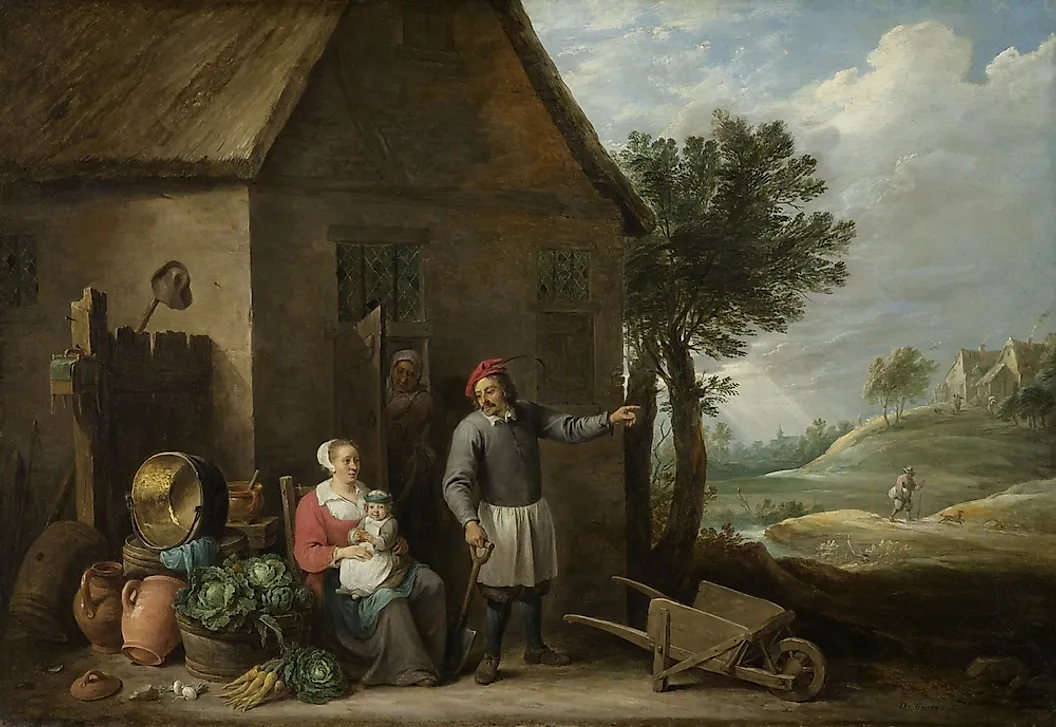
Image Source
Background
Freidrich A. Hayek’ “Road to Serfdom” was written in March of 1944, just about a year prior to the official surrender of Nazi Germany on the 8th of May, 1945. This was written prior to D-Day (June 1944), so while the defeat of the Nazi’s may have seemed likely, it wasn’t guaranteed. In a time like this, especially in war ravaged Britain, it makes sense why one might be scared of the institution of socialist/fascist values. Socialism and Fascism both arise during times of great crises for a country, and it is possible that Freidrich Hayek believed that after the war, the United Kingdom might head down that very path. He wrote about the founding of socialism, which was in France as a direct response to the French revolution, and the writers even said that their plans could not be put into action without a strong, dictatorial like, central government. From the very beginning, socialism was on the road to serfdom.
Planning to Power
Freidrich Hayek stresses that before anybody can wield power, first, somebody must start planning. In socialism, this involves planning for the economy. A guy comes along and says I know how to fix this economy and make it a prosperous Utopia for all, but FIRST, you must give me power. Plans can not be executed without power. Anybody can make a plan, hell I made a plan when writing this paper. But to execute the plan, when executing it over other humans, and ESPECIALLY when executing said plan over the opposition, it is necessary that one has an unprecedented degree of power. Democratic societies flourish so well because the power is almost entirely in the hands of the individual, and this creates healthy competition. A promise to “transfer power to the people” already makes no sense, because in a democratic society, people already have the power. They have the power to pick a career, the power to choose who to marry, the power to move, etc. Transferring power to the society doesn’t extinguish the power, all it does is magnify it, creating far-reaching authorities. These are necessary to keep the power going where the people in charge want it to go. By decentralizing the power away from the individual, you necessarily extinguish any hope for a “democratic socialist” society.
The Importance of the Individual
Keeping power in the hands of the individual is important for the economic flourishing of democratic societies, it has to be said. However, keeping the power in the hands of the individual is even more important for advancements in global society. Giving people the power (read freedom) to choose what to study, what to work on, and what to think about is how all great leaps forward in society were made. Great leaps forward in thinking were not made in a planning room, or under the harsh whip of a totalitarian society. The advancements made in Nazi Germany (rocketry, medicine) were not made because Hitler was staring over his planners, but rather the people who thought of these radical new ideas did so because they were one of the few individuals given the freedom to experiment. The freedom to think differently.
Economic Freedom
Hayek argues that central planning is a clumsy and inefficient way to run the economy of any country. I agree. Again, like the point above, people don’t make advancements with any great efficiency when under the barrel of a gun or the threat of imprisonment. A healthy economy needs people who are competing against each other, people who are thinking differently from one another. Central planning involves a singular nucleic mindset where actions are carried out. This means that there is very little in the way of adaptability that is present in a healthy, ever changing market. Furthermore, changing the way people are incentivized from monetary freedoms to those of public distinctions or better privileges would significantly alter the sense of personal achievement.
Tendency towards Totalitarianism
Moving to a central planning authority leads to some major issues. Once the central planning authority has been implemented, naturally, those inside tend to disagree on what exactly to plan, or how to implement said plan. In this time of gridlock, usually a powerful figure emerges and they are given complete control. The characters who are given power are usually not the type of guy you want with unlimited power, but are always the ones to step up because they are a little crazy. Even if socialism was to be tried in the UK, eventually a crazy dictator would be given power in order to break up the gridlock that happens in central planning agencies. Socialism inherently seeks equality in restraint and servitude, because in order for those at the top to remain in power, they require obedience from those below. Democracy, on the other hand goes away from totalitarianism and seeks the equality in liberty for those in its society.
Conclusion
Freidrich Hayek’s road to serfdom is a very accurate representation of what happens in societies that implement either socialism or fascism. Inevitably, gridlock occurs in the central planning system and one figure must be given absolute power. Inevitably, secret police or some type of suppression system must be implemented in order to keep the current state of power where it is. Inevitably, people get mad at this, and inevitably they are shipped off to the gulag (or equivalent). The road to serfdom happens the same every single time, yet most people are completely and utterly oblivious to the process.